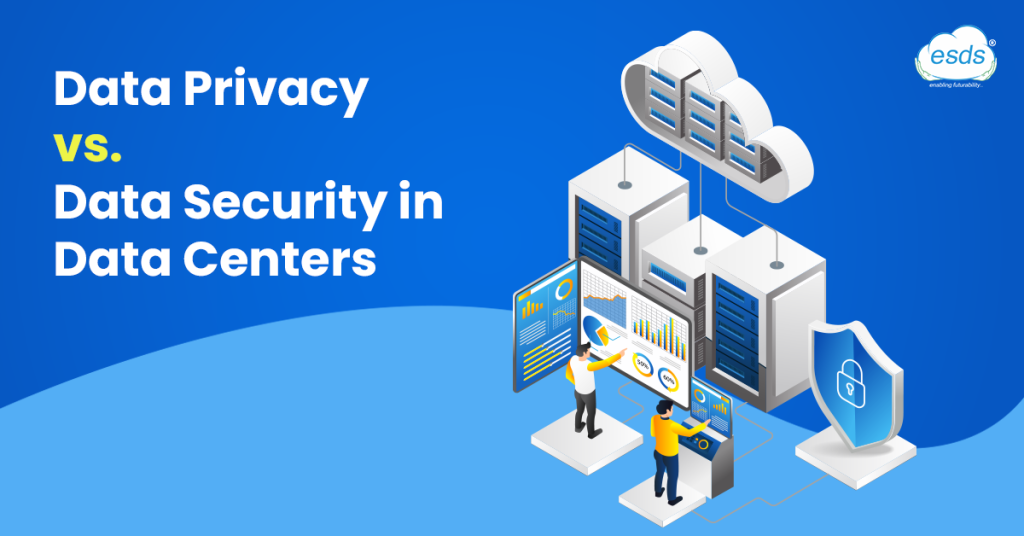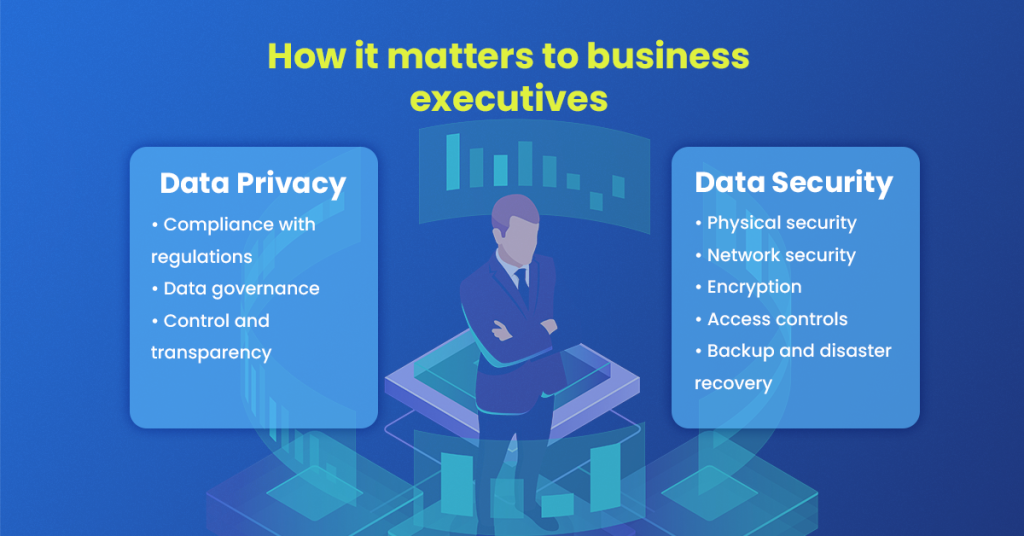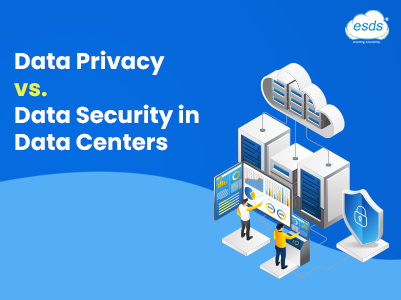Data Privacy vs. Data Security in Data Centers

As a chief leader, it is critical that you understand data privacy and data security in data centers. Despite their common interchangeability, these concepts play different roles in protecting your company’s most precious asset: its “data.” Since data centers are the hub for managing and storing data, learning how these facilities handle privacy and security concerns is essential.
Companies in India report attacks with ransomware at a rate of 64%; 65% opt to pay the cost. For the first time, it came to light that Indian organizations were more likely to pay the ransom (65%) to restore data than to use backups (52%). With 62% of ransom demands above $1 million and a median ransom payment of $2 million, the average ransom demand was $4.8 million.
In an era when the boundaries of the digital world are constantly being pushed and blurred, the ideas of data protection, data privacy, and data security in data centers have become essential pillars. We navigate a huge digital terrain with every click, share, and download, leaving behind valuable, vulnerable, and necessary digital footprints that require security. However, confusion often arises amid this complexity: What differentiates data security from protection and privacy? Do they have similar roles, or do they have different ones?
This blog digs deeply into the core ideas behind every concept, clarifying its unique features and interactions. It also emphasizes its importance in the digital sphere and how ESDS helps enterprises embrace their data security in data centers.
The Core Differences: Data Privacy vs. Data Security
Data privacy involves properly handling, processing, storing, and using personal data. Its primary objective is to ensure that personal data is gathered, exchanged, and used in compliance with laws and regulations. The fundamental component of data privacy is encouraging people to take control of their data while honoring their consent.
On the other hand, data security in data centers refers to protecting information from breaches, unauthorized access, and cyberattacks. It comes with all the tools and techniques to safeguard data from cyber threats while preserving its accessibility, privacy, and integrity.
Why are data centers important?
Data centers are the essence of modern industries as they provide the infrastructure to store, handle, and process vast amounts of data. They are becoming increasingly important as businesses depend on digital operations.
They offer:
- Scalability: Adapt resource levels in response to demand.
- Reliability: High uptime and availability ensure that applications and data are available when needed.
- Security: Advanced security protocols to shield data from multiple threats.
- Compliance: Facilities that provide data privacy and protection by adhering to strict regulatory standards.

Data privacy in data center
Ensuring data privacy in data centers entails the following for CXOs:
- Compliance with regulations: Data protection laws like HIPAA, CCPA, and GDPR must be complied with. Data centers must implement rules and technology that uphold individuals’ right to privacy and proper handling of personal data.
- Data governance: Establishing precise guidelines for gathering, storing, and sharing data. This involves implementing consent management processes and ensuring that data is only used for its intended purpose.
- Control and transparency: Providing people control over their information and openness regarding how their data is utilized. This can include deleting, editing, and accessing data mechanisms.
While national laws about data privacy vary, most impose some restrictions while protecting personal data from exposure and illegal access.
Your company could be subject to high penalties and legal action if these rules aren’t followed. If there’s a breach, you can lose consumers and face legal costs if the impacted people file a lawsuit.
Data Security in Data Centers
Inadequate security puts you and your business at risk for data breaches.
If your company does not have security measures, like managed services, secured cloud hosting, or privileged access management, it could be vulnerable to a breach.
Your data and resources are your most significant assets. A breach could present a severe risk to your organization or possibly result in its closure.
Strong security measures, such as the following, are necessary to protect data in data centers:
- Physical security: Providing the physical security of the assets through security staff, surveillance, and restricted access.
- Network security: Implementing intrusion detection systems, firewalls, and secure network architectures to stop cyber-attacks and unauthorized access.
- Encryption: Encrypting data in transit and at rest prevents breaches and unwanted access.
- Access controls: Implementing stringent identity management processes and access limitations to ensure that only authorized individuals can access sensitive data is essential.
- Backup and disaster recovery: Maintaining regular backups and thorough disaster recovery processes to guarantee that data can be restored during a major incident.
Wrapping up
Since data remains the lifeblood of contemporary businesses, CXOs must understand all data privacy and security aspects within data centers. By ensuring that your data centers follow the most stringent data protection standards, you can secure your company’s assets, comply with regulations, and establish a reliable, resilient business.
Reasons how cloud security is important
- Breach of data is always big news. Thus, safeguarding data and its users becomes essential, as does having it available whenever needed. Maintaining data backups is equally crucial.
- Data sovereignty: Recognize the storage location of your data.
- Clearly defined security roles and processes
The ESDS Cloud service and data centers offering has generated a lot of interest, and we’re happy to say that it has made it easier for our clients to use the services more securely.
In today’s digital landscape, investing in innovative data centers with strong privacy and security measures is a visionary strategic move and a need. Give these things top priority if you want to safeguard your company’s future and promote a culture of security and trust.
- SaaS Is Transforming the Way Companies Scale - April 28, 2025
- Why no backup plans even after repeated global IT failures? - February 25, 2025
- Can BFSI community cloud solve data security challenges in banks? - February 3, 2025
